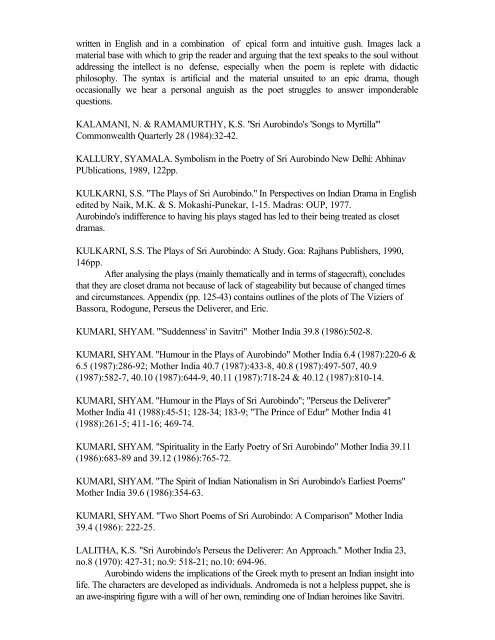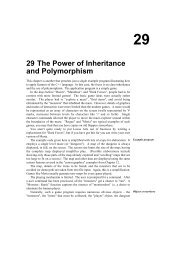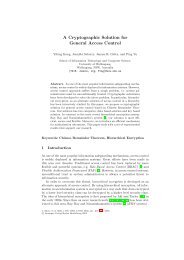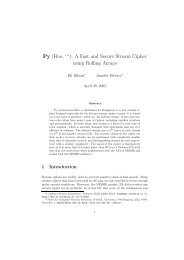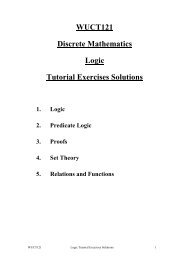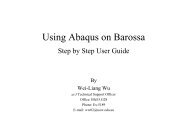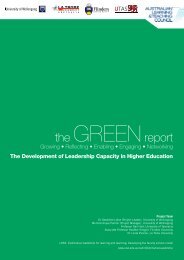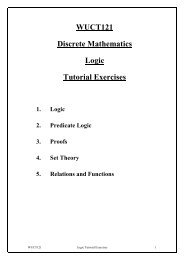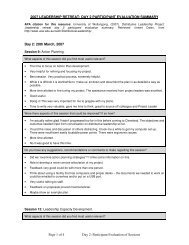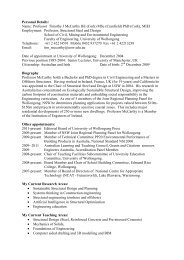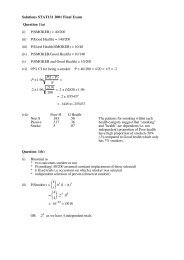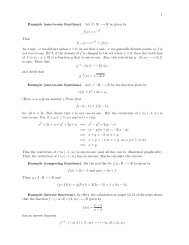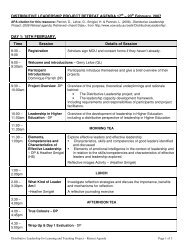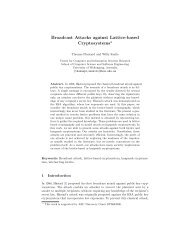india author m 1- a-nan - University of Wollongong
india author m 1- a-nan - University of Wollongong
india author m 1- a-nan - University of Wollongong
Create successful ePaper yourself
Turn your PDF publications into a flip-book with our unique Google optimized e-Paper software.
written in English and in a combination <strong>of</strong> epical form and intuitive gush. Images lack a<br />
material base with which to grip the reader and arguing that the text speaks to the soul without<br />
addressing the intellect is no defense, especially when the poem is replete with didactic<br />
philosophy. The syntax is artificial and the material unsuited to an epic drama, though<br />
occasionally we hear a personal anguish as the poet struggles to answer imponderable<br />
questions.<br />
KALAMANI, N. & RAMAMURTHY, K.S. "Sri Aurobindo's 'Songs to Myrtilla'"<br />
Commonwealth Quarterly 28 (1984):32-42.<br />
KALLURY, SYAMALA. Symbolism in the Poetry <strong>of</strong> Sri Aurobindo New Delhi: Abhinav<br />
PUblications, 1989, 122pp.<br />
KULKARNI, S.S. "The Plays <strong>of</strong> Sri Aurobindo." In Perspectives on Indian Drama in English<br />
edited by Naik, M.K. & S. Mokashi-Punekar, 1-15. Madras: OUP, 1977.<br />
Aurobindo's indifference to having his plays staged has led to their being treated as closet<br />
dramas.<br />
KULKARNI, S.S. The Plays <strong>of</strong> Sri Aurobindo: A Study. Goa: Rajhans Publishers, 1990,<br />
146pp.<br />
After analysing the plays (mainly thematically and in terms <strong>of</strong> stagecraft), concludes<br />
that they are closet drama not because <strong>of</strong> lack <strong>of</strong> stageability but because <strong>of</strong> changed times<br />
and circumstances. Appendix (pp. 125-43) contains outlines <strong>of</strong> the plots <strong>of</strong> The Viziers <strong>of</strong><br />
Bassora, Rodogune, Perseus the Deliverer, and Eric.<br />
KUMARI, SHYAM. "'Suddenness' in Savitri" Mother India 39.8 (1986):502-8.<br />
KUMARI, SHYAM. "Humour in the Plays <strong>of</strong> Aurobindo" Mother India 6.4 (1987):220-6 &<br />
6.5 (1987):286-92; Mother India 40.7 (1987):433-8, 40.8 (1987):497-507, 40.9<br />
(1987):582-7, 40.10 (1987):644-9, 40.11 (1987):718-24 & 40.12 (1987):810-14.<br />
KUMARI, SHYAM. "Humour in the Plays <strong>of</strong> Sri Aurobindo"; "Perseus the Deliverer"<br />
Mother India 41 (1988):45-51; 128-34; 183-9; "The Prince <strong>of</strong> Edur" Mother India 41<br />
(1988):261-5; 411-16; 469-74.<br />
KUMARI, SHYAM. "Spirituality in the Early Poetry <strong>of</strong> Sri Aurobindo" Mother India 39.11<br />
(1986):683-89 and 39.12 (1986):765-72.<br />
KUMARI, SHYAM. "The Spirit <strong>of</strong> Indian Nationalism in Sri Aurobindo's Earliest Poems"<br />
Mother India 39.6 (1986):354-63.<br />
KUMARI, SHYAM. "Two Short Poems <strong>of</strong> Sri Aurobindo: A Comparison" Mother India<br />
39.4 (1986): 222-25.<br />
LALITHA, K.S. "Sri Aurobindo's Perseus the Deliverer: An Approach." Mother India 23,<br />
no.8 (1970): 427-31; no.9: 518-21; no.10: 694-96.<br />
Aurobindo widens the implications <strong>of</strong> the Greek myth to present an Indian insight into<br />
life. The characters are developed as individuals. Andromeda is not a helpless puppet, she is<br />
an awe-inspiring figure with a will <strong>of</strong> her own, reminding one <strong>of</strong> Indian heroines like Savitri.


